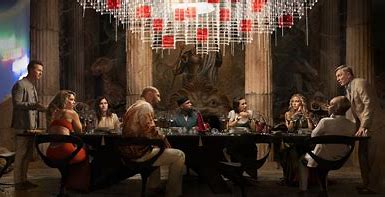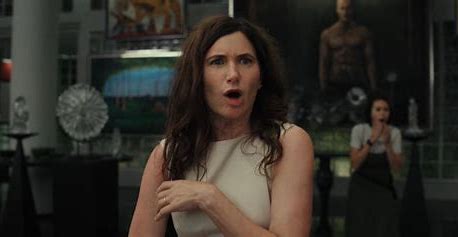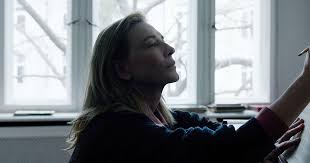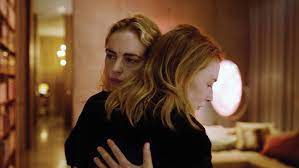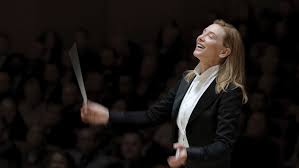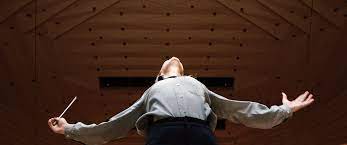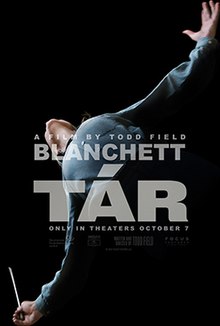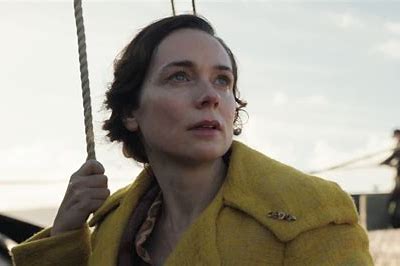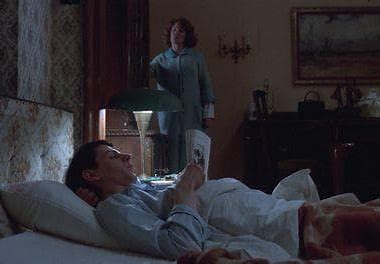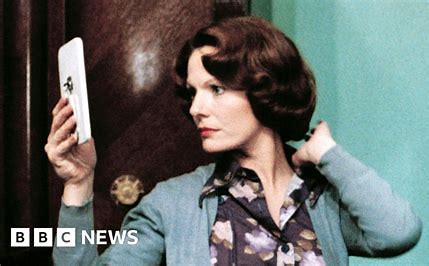Before I go any further, the link below will take you to my previous post which talks about my discovery of Jeanne Dielman and its critical history and its ascent to a truly high honor from modern day critics and directors alike:
Chantal Akerman's JEANNE DIELMAN: A Look at "The Greatest Film of All Time"
Within the first ten minutes of Jeanne Dielman, 23 quai du commerce, 1080 Bruxelles, we watch the titular character fiddle around her kitchen, entertain a gentleman caller, and take a bath.
This is all presented in a very straightforward and matter-of-fact way.
And with very little dialogue to boot.
To top that all off, once we get through those first 10 minutes, we watch Jeanne clean the bathtub and prepare for dinner which will just be for her and her teenaged son as she is widowed.
One could call Jeanne Dielman a film that truly embodies a "slice of life" motif. Others might call it "anticinema".
I have had friends or acquaintances of mine who appreciate film often insult or mock films of a certain nature that opt for what they might call a more pretentious approach.
Cinema is obviously a visual artform, and a lot of the appeal of going to the movies for many people has been the concept of "spectacle".
A certain reputation has formed around those who might opt to go see a small indie film as they mock the movies of the Marvel universe which continue to make bank year after year.
Sure, we might be considered film snobs, but I think cinema has a place for films that one might dub to be "nothing". Jeanne Dielman can be seen as a film about nothing and that it drags on for a running time that is nearly 10 minutes longer than the likes of Titanic or Schindler's List...but just as quietly as it crept up to obtain the crown of "Greatest Film of All Time", I would say Jeanne Dielman says a lot about gender/sexual politics without even conveying a lot of dialogue.
We observe Jeanne over the course of 3 days. In the first day, everything feels very routine.
I've already mentioned the cooking and the cleaning and the gentleman caller and the bath, but we also get:
-Jeanne and her son having dinner
-Jeanne reading a letter aloud to her son, Sylvain from his aunt.
-Jeanne helping Sylvain practice accent work
-Jeanne crocheting while reading the newspaper.
Everything so far has been dripping with pure domesticity. Jeanne's life is nothing but a repetitive routine...but then you get this added spin of her prostituting herself for money. When Jeanne reads the letter to Sylvain, Jeanne's sister mentions how brave it is that Jeanne remains single after the passing of her husband. It doesn't really show that Jeanne cares that deeply about finding companionship...which we will find out a little more about later.
She simply is doing what she has to do to provide for herself and Sylvain. She shows no shame by it, nor should she feel shame by it.
With the day winding down, Jeanne and Sylvain straighten up the living room and then prepare for bed.
This is when we start to get more of a direct glimpse into the relationship between the two of them, and it is also the moment I can recall when the film really truly pulled me into its spell.
Jeanne brushes her hair before bed and then goes to wish her son a goodnight.
Before parting the room, Jeanne notices Sylvain is reading. She had already a comment during dinner that he shouldn't be reading at the table...and now he is reading before bed.
The following exchange occurs:
_____________________
JEANNE: You're always reading, just like your father.
SYLVAIN: I know. You already told me.
(pause)
How did you meet my father?
JEANNE: Why do you ask that now?
SYLVAIN: I just read the word "miracle"...and Aunt Fernande always said it was a miracle she met Jack.
JEANNE: Yes, he came in '44 to liberate us. They tossed chewing gum and chocolates to us, and we threw flowers to them. I met your father after the Americans had left. I was living with my aunts, because my parents were dead. One Saturday, I went to the Bois de la Cambre with a girlfriend. I don't remember the weather. She knew him. You know who I mean. I've shown you her picture. So, we began seeing each other. I was working as a billing clerk for horrible pay. Life with my aunts was dull; I didn't feel like getting married, but it seemed to be the thing to do, as they say. My aunts kept saying "He's nice...he has money. He'll make you happy"...but I still couldn't decide. I really wanted a life of my own, and a child...then his business suddenly hits the rocks, so I married him. Things like that happened after the war. My aunts changed their minds. They said a pretty girl like me could do better and find a man who'd give me a good life. They said he was ugly and so on, but I didn't listen.
SYLVAIN: If he was ugly, did you want to make love with him?
JEANNE: Ugly or not, it wasn't all that important. Besides, "making love", as you call it, is merely a detail. And I had you.
SYLVAIN: Would you want to remarry?
JEANNE: No. Get used to someone else?
SYLVAIN: I mean someone you love.
JEANNE: Oh, you know...
SYLVAIN: Well, if I were a woman, I could never make love with someone I wasn't deeply in love with.
JEANNE: How could you know? You're not a woman. Lights out.
____________________
There is a forwardness between these two that doesn't feel as typical between what you would expect between a mother and a son.
However, within this exchange, you get the history you need to know to sort of understand Jeanne. This was a woman who did love the idea of having a child, but never seemed to be that invested in the idea of being married.
But it was the late 40s/early 50s, it was "the thing to do".
And here you have her teenaged son, who does seem to support her, but he is thinking along the lines of her finding someone new to love. The big difference is she doesn't seem to care and seems pretty content while he seems to have an old-fashioned view on only having sex with someone he loves.
Little does he know that the manner in which she is supporting him is by sexual favors.
In one fell swoop, we have a woman onscreen right at the height of the 70s Womens Movement, basically proclaiming in a subtle way that she doesn't need a man to marry, nor does sex have to be directly linked to love.
Or maybe on some level, she longs for it and can't bear to focus on that detail.
That is where we proceed into the second day...and once we get to the second day, the routine repeats.
Perhaps under a lesser hand, this repetition could come across as if Jeanne were repeating some kind of Groundhog Day scenario, but instead, the routine seems to be what is keeping Jeanne at bay.
We slowly see tiny moments of this routine start to unravel.
When Jeanne prepares potatoes, she overcooks them.
When she tries has a freshly washed spoon on the floor, it is a little action that seems to crack something very subtly within her psyche.
Jeanne is played by Delphine Seyrig, a French actress who would eventually pass away from cancer in 1990.
Seyrig's work in this movie reminds of Anna Magnani...although the mere mention of Magnani might make some raise an eyebrow as that actress was known for her volcanic and rather intense acting approach in many Italian Neorealist films of the 40s and 50s. That was the thing about Magnani though; she was very bold, but she was very real in that emotional intensity.
Seyrig is at the other end of that spectrum. She is all about the subtlety.
When you watch Seyrig in these scenes, she goes about her day doing these activities without any sense of performance. It is truly an example of someone onscreen simply living a life...but that isn't to say that Seyrig is unremarkable.
Far from it.
Seyrig manages to have a very provocative screen presence even while performing a simple act such as peeling potatoes. She is actually a marvel at expressing these slight cracks in her emotional state, such as smiling but having the size of it fade over time as she slowly slips away from her sense of reality.
It all feels like a truly gradual descent into a quiet nervous breakdown happening in real time, but without any kind of bells and whistles that might make for an "Oscar-bait" scene.
The film focuses on so many of the same scenes on each day so that we can watch Jeanne slowly lose a grip on this calculated life she has built.
The genius of Akerman here is how subtly she herself stages these scenes because no matter how small the little deviations of the routine are, you slowly feel yourself feeling covered by a dark cloud. The amount of dread that starts to permeate everything is slowly being turned like a knob by both Akerman and Seyrig. I would go as far as to say very few performers and filmmakers have ever synched up in such a potent way as Seyrig and Akerman did on this film.
This is where the major spoiler point comes into play.
Jeanne entertains another gentleman caller on the third day. We don't see her actually participating in any sexual acts...in fact, any time that occurs, the film will literally keep us in a dark space without any real sense of how the act plays out.
Although, following this particular act, we see Jeanne standing at the foot of her bed getting dressed. Her gentleman caller is lying in bed basking in the afterglow while she just seems very disconnected from everything around her...until she spots some scissors lying on her vanity. She picks them up and walks out of view of the camera, only to abruptly reappear stabbing her "john" in the chest.
As he lies dead in her bed, we suddenly see Jeanne sitting back at her kitchen table.
And we watch her, for nearly 6 minutes straight, just sitting there. She appears somewhat despondent but maybe even a little relaxed even with the blood still on her right hand. She tries to awkwardly adjust her posture as if she is trying to rebuild her emotional barrier that she had built around her to protect from any kind of harm she might cause to herself, Sylvain, or to anyone else...and it makes you wonder what the next step is for Jeanne. What kind of potential trauma will she face from this incident?
We will never know.
The film fades to black and the credits roll and the only sound you hear are the cars whizzing by on the street outside her home.
There is truly something unsettling about Jeanne Dielman and while I wouldn't say it is scary like a horror film, it leaves this weird uncomfortable feeling that not many horror films have achieved for me.
Akerman's direction on this film might appear to some as being static and dull, but I think what she achieved here is absolutely stunning.
Chantal Akerman
In interviews, the late Akerman stated that as a filmmaker, she wanted to maintain a sense of space for the character of Jeanne. A lot of the shots are done at a slight distance as if Akerman is in Jeanne's home but doesn't want to impose too much on the proceedings. All of the framings were meant to "respect" Jeanne's space, and that the long static shots simply would always keep the viewer knowledgeable of where she was.
Akerman also used an entirely female crew for the film which she actually deemed a disaster after the fact.
She said: "It didn't work that well. Not because they were women - but I didn't get to choose them. It was enough for them just to be women - so the shooting was awful".
She also stated that various images in the film were built around the idea of social hierarchies and how women are perceived within them. "Women's work comes out of oppression...and whatever comes out of oppression is more interesting. You have to be definite. You have to BE".
Akerman seemed to have a gift at taking a stab at the idea of the patriarchy without fully ignoring the aspects of it that could be fruitful to show the tragic plights of many women at that time...or even simply women who maybe weren't negatively affected per se but perhaps might've found more joy in life if they didn't stick to certain routines.
Maybe Jeanne would've had a happier life had she taken more chances...but who are we to judge her for how she chose to cope with the death of her husband? She didn't even seem to be that invested in him as it is.
I am not saying I condone murder, of course...as it does seem like Jeanne's unraveling took the life of an innocent man. But...I personally take the view that Jeanne's life of rote routines and domestication are what led to her emotional downfall. She did want to be a mother and loves being a mother, but she didn't care too much about being a wife and yet, she managed to find some sort of weird solace in these domestic activities.
If you want to really simplify it, you could say that this is a great advertisement for women to run out of their homes and get a job in the work force.
I think that is rather brash and not particularly enthralling way of analyzing what the film is trying to say...but there is a certain truth to that.
Jeanne Dielman, 23 quai du commerce, 1080 Bruxelles manages to say so much with so little about grief and the idea of women's roles in society.
Akerman made this film when she was 25 years old...and she would've only been 72 if she were still alive today.
As a filmmaker, she managed to find a way to create a truly compelling vitality in what seemingly seemed like nothing. That is why Akerman deserves this kind of recognition.
That is why Jeanne Dielman is truly a masterwork.








